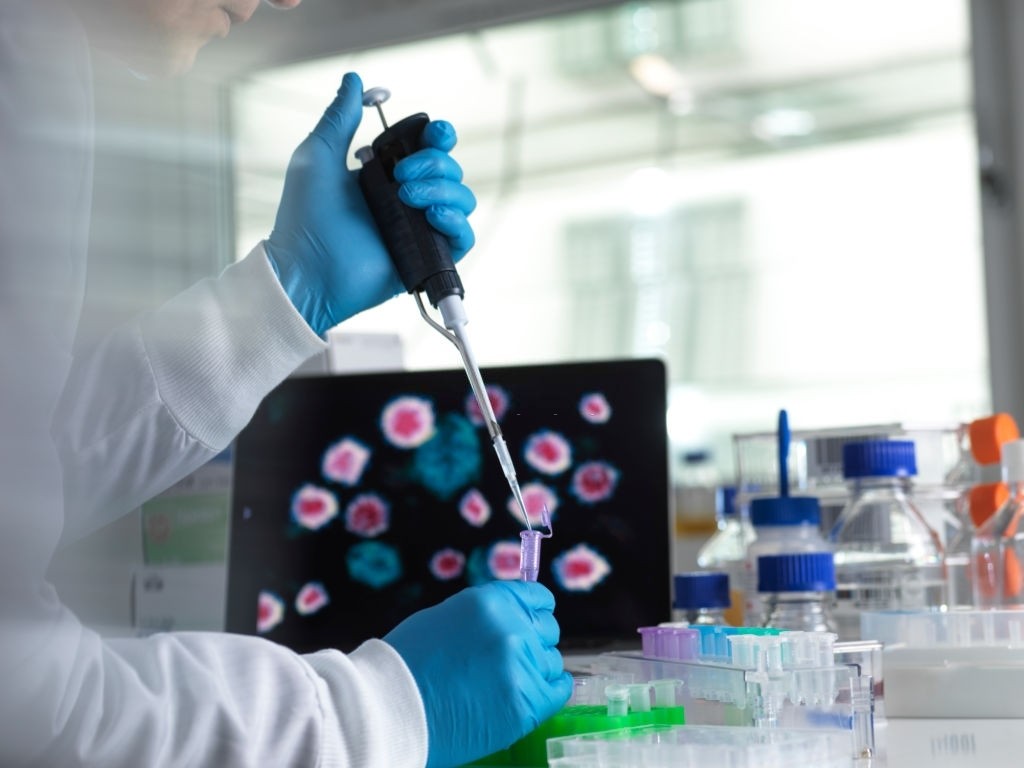AIMST INFO SHARING DAY
1FORCE AGAINST CRIME PROGRAMME ORGANISED BY MITRA
Venue: G HOTEL, PENANG
Date: 10 April 2021 & 11 April 2021
Time: 8am - 5pm
How Business Studies Help You Stay Competitive in the Covid-19 Pandemic?
Finance, accounting, management, marketing, economics, and other business-related subjects are among the most common fields of study at universities worldwide, especially at the graduate level. You probably know why this is the case – business graduates are in high demand worldwide (even during the Covid-19 Pandemic). Business impacts almost every aspect of modern society. Business degrees such as an MBA lead to a wide variety of professions that are often well-paid. Whether you want to work in fashion, finance, or something in between, you can't do without business if you intend to make a profit. It's either you hire someone who knows how to run the company or do the work yourself. Here's how business studies will help you remain competitive in today's world.
1. Improve Your Communication Skills
Even though most business practices are now performed virtually, writing a persuasive report or giving a winning pitch, or even writing the correct email, requires outstanding communication skills. While studying business, you can collaborate on various demanding projects with students from all over the world. Your viewpoints and perceptions may be divergent, and you can also disagree. To get the grade, you'll need to evaluate cases, react diplomatically to opposing views, and master the art of persuasion—all these help improve your communication skills which are essential in selling your brand.
2. Marketing: Know Your Target Market
Teachers exchange ideas with students to inspire them, politicians run campaigns to gain popularity, and job applicants must sell their qualifications to get hired. Making your concept (or application) stand out is not an easy task, but business studies will help you understand your target audience and how to relate to them creatively. This will come in handy if you're trying to get buy-in from your friends or investors, whether you own or work for a company.3. Budgeting and Accounting
Owing to bad financial management, sometimes even great companies struggle to thrive. Don't be put off by financial principles if you want to start your own company. Now that people are forced to start a business due to global downsizing, business studies will teach you the fundamentals of budgeting and accounting, allowing you to feel confident and prepared to improve your company's results.4. Unleash Your Inner Entrepreneur
Students are increasingly attending business school to learn how to start their dream company. Being your boss has a lot of advantages and is becoming increasingly important in today's world. On the other hand, being a good entrepreneur, necessitates ingenuity, innovation, and a solid execution plan. Attending the right business school will help you grow your entrepreneurial skills and test your ideas. Who knows, maybe in class you will find your potential business partner.5. Investment and Finance Helps You Understand How the World Works
Financial loans are an option for several large transactions, such as purchasing a home, a car, or paying for a business school degree. How do you know when it's safe to take out a loan? Similarly, you may want to invest in stocks, shares, or real estate at some stage in your life. What do you put your money into, and what considerations should you think about? A business Bachelor’s degree or an MBA will provide you with a solid understanding of basic economic concepts, how global issues impact economies, and how to evaluate a company's financial health. This, when combined, will assist you in making more informed investment decisions and, eventually, how to increase your return on investment.
6. Project Management Skills
Are you interested in managing large-scale projects? A business degree will help you improve your project management skills, whether you work in the music industry, the military, or the non-profit sector. Working on real-world business issues will show you how to solve problems and prioritize resources using an analytical, cost-effective approach.In a Nutshell
Business studies in several fields, including marketing, economics, finance, etc., will help you stay relevant even during a pandemic. Whether you intend to start a business or work for an existing company, your knowledge and degree in business studies will give you an edge in any industry. For more information regarding a foundation in business, business degree or MBA, feel free to get in touch with our friendly counsellors.How varsities can drive prosperity via R&D
As the government is constrained by the limited number of research institutes to embark on path-breaking research, universities can step in to bridge the gap between societal needs and industry averseness. Get to know more on how universities can drive a nation’s prosperity via R&D through an article by AIMST University’s Vice-Chancellor & Chief Executive, Professor Datuk Dr. John Antony Xavier. The opinion piece on ‘How varsities can drive prosperity via R&D’ was published in the columnist section of the News Straits Times (NST) on 7th April 2021. Click https://www.nst.com.my/opinion/columnists/2021/04/680219/how-varsities-can-drive-prosperity-rd to read.
Is a PhD Right for Me?
If you are considering a PhD program, you're probably asking questions and getting advice from fellow students, administrators, parents, and the Internet. With all that information available, it can be difficult to know which advice to pay attention to and what would make the most difference in the long run. Consider the following questions to determine if a PhD program is right for you.
1. Do You Want to Make a Contribution Towards Your Chosen Field?
Many students seek a PhD because they are passionate about a particular topic and want to use their research time to advance knowledge in that field. One of the best aspects of getting a PhD is being able to carry out your research. Other experts in your chosen field of academia will reference your work and discoveries when teaching future students if your thesis and results are strong and significant.2. Do You Have Any Long-Term Career Goals in Mind?
Some students seek a PhD to achieve their long-term educational goals. A PhD is required for those wishing to pursue a career in academia, as it allows them to continue their studies while still teaching undergraduates. Many interested in pursuing a career in this field should aim to obtain teaching experience during their PhD by offering first-year undergraduates lectures and seminars. Many PhD graduates who were fortunate enough to complete their studies went on to work for the companies that sponsored them. Similarly, the analytical and research skills acquired during a PhD program are highly transferable to other fields.3. Are You Looking to Improve and Challenge a Body of Knowledge?
Some people have a curious mind naturally, and pursuing a PhD would seem like a logical next step in their academic pursuit. Unlike undergraduate and master's degrees, the PhD program would be less structured, allowing students to focus on particular interest subjects.
4. Do You Enjoy a Particular Subject Matter?
Many students pursue a PhD only because they are interested in the subject and want to learn more about it. Even though contact hours are minimal, the PhD is a very intense course in which, for at least three years or four years, you will be living and breathing your research and thesis. Therefore, make sure you enjoy it before committing.5. Are You Looking to Demonstrate Your Intellectual Potential?
A PhD program will separate the good academics from the fantastic ones. It not only demonstrates a person's ability to conduct independent research, but it also shows their in-depth knowledge of a specific subject area. This is vital in the academic world.6. Are You Looking to Access More Prestigious Jobs?
One advantage of a PhD is that it opens doors to top-level positions. This can include science and engineering leadership positions, government economics and political science positions, and prestigious teaching positions for English and arts majors. Even if a PhD isn't needed for the work you want, it can boost your profession and give you an advantage over other applicants.
7. Do You Want to Improve Your Soft Skills in General?
You may have noticed that you studied more than just the subject matter discussed in each class when obtaining your undergraduate degree. Completing your studies necessitated time management, concentration, and problem-solving abilities. Obtaining a doctorate necessitates even more of the soft skills that employers value in job candidates. Problem-solving, critical thinking, persistence, and adaptability can all develop due to your rigorous research and completed thesis. These desirable skills will help you land a job and help you succeed in whatever career path you choose.In a Nutshell
Have you made up your mind about pursuing a postgraduate program or postgraduate studies, such as a PhD? Are you still considering your options? Before you take on the challenge, you should think about all of the criteria, including cost. To help you make an informed decision, thoroughly research your chosen sector and analyze the job market. For more information regarding postgraduate studies or postgraduate program, feel free to get in touch with our friendly counsellors.Top Engineering Trends That Will Shape IR 4.0
The combination of digital processes such as the Internet of Things, automation, robotics, and additive manufacturing, known as Industry 4.0, has a disruptive impact on electrical and mechanical engineering design. Engineers in different fields must redesign processes and operations to accommodate these new advancements. Moreover, Industry 4.0 also influences how products are designed for increasingly smart manufacturing facilities. As Business 4.0 takes root, forward-thinking developers will adopt these digital tools and innovations. This will enable them to produce higher-quality products more efficiently and respond more quickly to shifting consumer demands, thereby increasing customer loyalty and market share. Here are the top engineering trends that will define IR 4.0.
1. Factory Automation
There are numerous reasons why businesses are embracing Factory Automation technologies. This includes increasing the efficiency of production lines, making better use of resources, and increasing productivity. Maintaining competitiveness in rapidly changing marketplaces is another motivator for increasing businesses to adopt Factory Automation solutions. There are difficulties, not the least, of integrating legacy systems and platforms with new equipment and technologies. These challenges, however, are not insurmountable, and Factory Automation will be a feature of manufacturing for many years to come, not just in 2021.2. Mixed, Virtual, and Augmented Reality
Mixed, virtual, and augmented reality can be used in a variety of ways in manufacturing facilities. This includes product design, development of production lines, driving OEE improvements, technical and engineering support, training, team collaboration, inventory management, and other responsibilities. These technologies enable businesses to be more effective while also becoming more efficient. One area of use will be to use augmented and virtual reality to develop a new assembly line or product in the virtual universe, perfecting it before real-world prototyping or manufacturing starts.
3. Networking and Connectivity
Network and connectivity are two of the essential factors in enabling Industry 4.0. A variety of technological advancements, including edge-to-cloud, gigabit ethernet time-sensitive networks, low-power wide-area network (LPWAN), nudge factories to implement IIoT transform into Industry 4.0 facilities. Other technological advancements include 5G, machine-to-machine communication (M2M), real-time deterministic ethernet, time-sensitive networking (TSN), ubiquitous radio access, unified IoT framework, and zero-touch networks. These developments are continually improving machine-machine and human-machine connectivity, as well as data transfer. As a result, advances in this field increase speed, security, and productivity while also lowering network access costs.4. Advanced Robotics
Robotics advancements make industry 4.0 processes faster, more efficient, and safer. Autonomous robots, collaborative robots (cobots), collaborative autonomous mobile robots, humanoid, mobile robots, cloud robotics, APIs, pick and place robots, and robot swarms are among the most prominent robotic technologies influencing manufacturing. The use of robots improves precision and agility while also increasing the capability of rapidly developing customizable robots. Robots also allow the human workforce to focus on non-repetitive or high-value tasks.
5. Quantum Computing
Quantum computing makes use of the peculiar phenomena observed when operating at the subatomic level, such as quantum entanglement, quantum tunnelling, and the ability of quantum particles to exist in more than one state at the same time. Quantum computing will completely reshape what a computer is and could provide computing power millions or trillions of times greater than today's supercomputers. While traditional binary computation would likely suffice for several computer tasks soon, incomprehensibly fast quantum computing is anticipated to provide a broad range of artificial intelligence applications and decoding complex structures such as genomic knowledge.6. Edge, Fog, and Cloud Computing
The vast amount of data generated by the industrial internet of things (IIoT) fuels the implementation of edge, fog, and cloud computing technologies in Industry 4.0. This industry 4.0 trend is being shaped by custom hardware and software solutions such as connected clouds, distributed clouds, distributed compute and storage, hybrid computing, low code development platforms, microservices, mobile computing, and multi-access edge computing.The Bottom Line
Smart engineers will have more opportunities. More technology and tools, such as MATLAB, will enable engineers and scientists (not just data scientists) to work with AI and other technologies to promote Industry 4.0. To best address the trends outlined above, engineers will be required to build models, deal with large data sets, and use the appropriate development tools. Companies will be on the lookout for skilled engineers with different types of engineering degrees, including a diploma in electronic and electrical engineering, to prepare for a future in which Industry 4.0 is only the beginning of factory evolution.Why Do the COVID-19 Vaccines Need to be Kept So Cold?
Some students studying to get a bachelor's or master's degree in biotechnology might be asking why Covid-19 vaccines need to be kept at such low temperatures. Here's why:
The two COVID-19 vaccines (Moderna and Pfizer-BioNTech's) that have been approved need extremely low temperatures to stay viable, but this isn't uncommon. Most vaccines are held between -50°C and 7.8°C, according to the Pan American Health Organization, a specialist international health agency for the Americas.
To stay effective, Pfizer's vaccine must be stored and delivered at a freezing temperature of between -80°C and -60°C. At the same time, Moderna's vaccine is kept between -25°C and -15°C during frozen transportation and between 2°C and 8°C during refrigerated transportation.
Certain elements could degrade if these temperatures are not preserved in the cold chain, rendering the vaccine useless. Vaccines will only come out of the deep freeze at the end of the journey when they're thawed and ready to be administered.
Covid-19 vaccines' transportation and storage is a huge and expensive undertaking. Both Moderna and Pfizer-BioNTech's vaccines, which the Food and Drug Administration has given Emergency Use Authorization in the US, must be held at subzero temperatures before they hit their destinations. Even a little logistical snag could stymie immunization efforts.
So, why do Covid-19 vaccines need to be shipped and stored at extremely cold temperatures?
The type of Covid-19 vaccines approved for use in the US is the mRNA (Messenger Ribonucleic Acid) vaccine. The instability of RNA (ribonucleic acid) is well-known. Before working with RNA in the lab, it's normal for scientists to clean their workspace of "RNases," or ubiquitous environmental enzymes that quickly break down RNA.
RNA is single-stranded and contains ribose (hence "RNA"), while DNA has two strands and includes a submolecule called deoxyribose (hence "DNA"). This makes RNA molecules more vulnerable to degradation. Despite the chemical changes and packaging used by these companies to make it more resistant, it nevertheless falls short of DNA or protein in terms of tolerance.
Extreme temperatures delay chemical and enzymatic degradation, ensuring that RNA vaccines' effectiveness is preserved from manufacturing to injection. Since several RNA copies are transcribed from DNA templates, which are then used to produce proteins, RNA's instability is beneficial to our cells. However, as the cell's necessary proteins are formed, the instructions are degraded.
 These temperatures are determined by measuring the vaccine at a variety of temperatures and storage durations. Protein vaccines, on the other hand, have their own set of requirements. Though they're usually kept in the fridge, freezing them will denature the proteins and make them useless.
Using mRNA (messenger ribonucleic acid) technology has been critical in creating a safe, effective vaccine in such a short amount of time. Still, mRNA is highly fragile and easily broken down. Because of mRNA's inherent volatility, creating an mRNA-based vaccine has been difficult in the past. Furthermore, the biological material used to package the mRNA to be administered as a vaccine is unstable.
Fortunately, a great deal of effort has gone into improving methods and technology to make mRNA more stable, allowing it to be effectively integrated into a vaccine. Nonetheless, cold storage will be needed for the first two COVID-19 mRNA vaccines to ensure that the mRNA inside these vaccines remains stable.
These temperatures are determined by measuring the vaccine at a variety of temperatures and storage durations. Protein vaccines, on the other hand, have their own set of requirements. Though they're usually kept in the fridge, freezing them will denature the proteins and make them useless.
Using mRNA (messenger ribonucleic acid) technology has been critical in creating a safe, effective vaccine in such a short amount of time. Still, mRNA is highly fragile and easily broken down. Because of mRNA's inherent volatility, creating an mRNA-based vaccine has been difficult in the past. Furthermore, the biological material used to package the mRNA to be administered as a vaccine is unstable.
Fortunately, a great deal of effort has gone into improving methods and technology to make mRNA more stable, allowing it to be effectively integrated into a vaccine. Nonetheless, cold storage will be needed for the first two COVID-19 mRNA vaccines to ensure that the mRNA inside these vaccines remains stable.
Transporting Covid-19 Vaccines
Air freights and other modes of transportation play a vital role in delivering Covid-19 vaccines across borders. However, they require well-established temperature-sensitive distribution systems and cutting-edge technology and procedures. This capacity will be critical in ensuring the timely and effective delivery of COVID-19 vaccines. This will, of course, necessitate meticulous preparation on the part of every section of the cargo supply chain to ensure total readiness. Vaccines must be treated and shipped under international regulatory and manufacturer standards, at regulated temperatures, and without delay, to ensure product consistency.
Final Note
Throughout the cold chain, from packaging to delivery, Covid-19 vaccines are kept at extremely low temperatures to ensure that the mRNA content remains stable and effective when administered. For those who study a Bachelor of Biotechnology or Master in Biotechnology, the points discussed above should be easy to understand. We hope this post gives you a good idea of why the COVID-19 vaccines need to be kept at such a low temperature.AIMST INTERNATIONAL DENTAL E- CONFERENCE- AIDEC 2021
We would like to thank everyone for the feedback we have received till now. As promised we are back with all the information requested to get registered in AIMST INTERNATIONAL DENTAL E- CONFERENCE- AIDEC 2021. Please hold on as it is yet to complete. The organisers of AIDEC 2021 will be back soon to introduce the elite panel of guest speakers, co-organisers, and platform switching - workshop details. Kindly bookmark and stay alert!!
Digital technologies can overcome Covid-19 disruptions
We are facing a major pandemic that has drastically affected social and economic growth. Since last year, lockdowns have been imposed so that the burden of COVID-19 can be mitigated. While this move has saved lives, it has destroyed livelihoods with disruptions to businesses and industries. In relation to this, Dr. Haarindra Prasad, the Dean of the Faculty of Engineering and Computer Technology (FECT) AIMST University has come up with suggestions that can help government and businesses to exploit digital technologies in managing the dilemmas caused by the pandemic through a write-up titled ‘Digital technologies can overcome Covid-19 disruptions’. The opinion piece was published in the News Straits Times (NST) on 6th April 2021. Click https://www.nst.com.my/opinion/columnists/2021/04/679942/digital-technologies-can-overcome-covid-19-disruptions to read.
Program Hari Terbuka AIMST 2021
Venue: AIMST UNIVERSITY
3 April 2021
8am - 12pm
Tips to saving water while brushing teeth
AIMST University’s Deputy Vice-Chancellor (Student Affairs) and the Dean of Faculty of Dentistry, Associate Professor Dr. Ramesh Kumaresan has listed eight simple tips to save water while brushing our teeth. While referring to data by the National Water Services Commission, he had stated that Malaysians consume more water than recommended by the World Health Organisation (WHO). Dr. Ramesh’s write-up on ‘Tips to saving water while brushing teeth’ was published in NST’s Letters to the Editor column on 30th March 2021. Click https://www.nst.com.my/opinion/letters/2021/03/678015/tips-saving-water-while-brushing-teeth to read.
Help to quit smoking
Associate Professor Dr. Hasnah Hashim from the Dental Public Health Department, Faculty of Dentistry of AIMST University has highlighted the role of dentists to identify smokers and help encourage them to stop the habit.
According to her, patients may be receptive to cessation advice if their health concerns can be related to smoking. Furthermore, she has also contributed her opinion on tobacco cessation efforts using the 5As approach.
The article, titled ‘Help to quit smoking’ was featured in the STARHEALTH section of The Star on 21st March 2021. 
Why Mastery of Mathematics is Important
Mr. Raman Raguraman, the Deputy Dean of the Faculty of Engineering and Computer Technology (FECT), AIMST University has articulated the importance of mathematical skills and knowledge. He has also offered recommendations to revive the interest among children to learn mathematics at high school level. His short write-up on ‘Why mastery of mathematics is important’ was featured in NST’s Letters to the Editor column on 19th March 2021. Click here to read.

